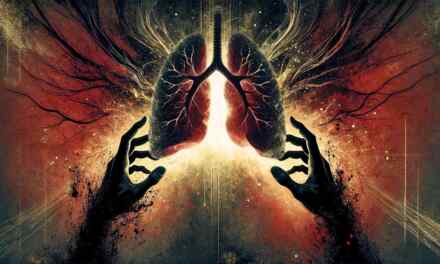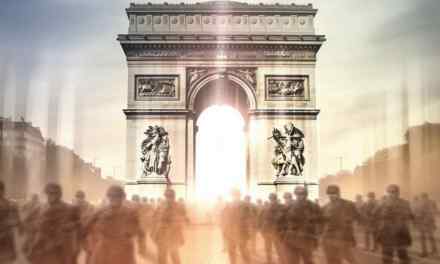They met day-drinking.
It was cold and wet, not quite raining but threatening to, in the way that storms do even when they don’t then intend on getting on with it; and though they each might have spent the day in a bar anyway, this one lent itself to being spent indoors and the atmosphere just kind of lent itself to drinking.
It was late morning when they began, the first customers in a small-town corner joint that still smelled of the night before. They were at opposite ends of the bar and what with one thing or another they struck up a conversation. It just became easier to sit together, even though neither one of them had begun the day looking for someone to spend time with. They were both well-versed in the drinker’s skill of maintaining the right buzz by neither drinking too much or too little, and it didn’t matter to either one of them that the other was less than perfect company for any other occasion, or that they both smoked too much.
His name was Loren. Hers was Lauren. This struck them as disproportionately hilarious and they pointed it out to everybody who came in and sat anywhere near them. It turned out that they’d both been married and divorced, that they both had grown kids they didn’t speak with much, and that they’d both lived in town all their lives, except for her two years as a failed college student and his as a fuckup soldier. Their failure to ever meet up with each other before also struck them as disproportionately hilarious, enough that they drank to it, and this too went on for a while until he said,
“I like you.”
She said, “You’re okay.”
“That the best compliment you can give?”
“It’s a perfectly fine compliment. You’re a funny guy.”
“Ha. That’s the way I like to be remembered. A funny guy. Like I’m spinning at high speeds and tossing out witticisms like shrapnel.” He shook his head. “But there’s a bit of an insult hidden behind that compliment, isn’t there?”
“Far as I’m concerned, it just means you’re a funny guy.”
“You ever see that old movie, Goodfellas?”
“I don’t give a shit about movies.”
“Bunch of Mafia guys, carousing in a bar. One calls another a funny guy and for a minute there it looks like he’s gonna take serious offense. You wonder if someone’s gonna get shot or something.”
“All I know is I never heard of it. I just meant you’re a funny guy.”
He said, “I’ll take it, I guess.”
“Imagine my relief.”
Then he said, “Hey, you ever see the castle?”
“What castle?”
“You know. The one everyone’s been talking about. Out by the water.”
She made a foggy connection. That thing. She remembered people talking about it, some last night in this very room. “Been thinking of a taking a look. Too many things to do.”
He said, “It looks like rain. Phil, don’t you think it looks like rain?”
The establishment’s windows were too tinted to allow easy transparency, delegating all serious assessments of the weather to that category of patron willing to go outside and look up, but Phil the day bartender had long since learned that with a certain other category of patron, reflexive agreement was the easiest route to peace. “Yeah, been that way.”
Loren said, “We wait too long, rain’s gonna frickin’ destroy the thing.”
Lauren said, “So?”
“So what is it? Three blocks to the beach? We should take a look while we have a chance.”
She examined her drink, which was one quick swallow from extinction. Of course, that failed to consider the drink she could have next, which some part of her already mourned. And then, the automatic thought came, one after that, and this was a delightful prospect, but part of her remembered those old days when alcohol had been the route to spontaneity, the lubrication that had made her unpredictable, instead of the presence who could be counted on to still be perched on the same stool, two or three hours from now. An unscheduled trip to go see a castle struck her as a fine tribute to her vanished whimsicality. “Yeah, sure.”
They left the bar and started heading toward the shore. It was a waterfront town that always smelled of sea breezes, one that always lived by the weather that came rolling in from the water; one that, upon turning cold, really turned cold, which is why the air now wore on their bones like a coat that had been soaked in brine before being donned wet. To the extent that either Loren or Lauren ever noted changes in the weather, they had both noted that the weather had held this way for almost ten days, without ever congealing into rainfall; but yes, Phil had been right. Sure. It did sure as hell look like rain.
They made it to the place where the road dead-ended in a wooden barrier, just before a strip of tall grass separating the inhabited streets from the beach. A few moments spent on the narrow sandy path that cut between pavement and sand, they reached the beach, where gray water lapped against the shore, depositing seaweed and other debris.
Here, on the beach, sat an immense sand castle.
It had been sculpted over the course of three frenzied days by a team of artists who had seen fit to become world-class competitors at that delightful but largely irrelevant skill, who had come to the beach at the tail end of warm weather to create an ephemeral masterwork. Crowds had gathered to watch the construction in delight. There had been newspaper stories, TV news segments, the inevitable YouTube videos, all in service of this local sensation that would melt into a shapeless ruin at the first substantial rain. Almost everybody who lived within walking and driving distance, who had any sense of whimsy or wonder at all, had already come to see it, just to record the site within their own gray matter; then the weather had changed, and the crowds had thinned, abandoning it to its inevitable destruction by the elements.
It was immense, by the standard of such things. It was surrounded by a four-foot wall, sculpted to simulate brickwork. A narrow walkway under a low arch—still intact—simulated the drawbridge over a moat. There was a sign on a stick there, reading, PLEASE KEEP OUT! SCULPTURE IS FRAGILE! Inside, after a courtyard, stood the castle, ten feet high, an intricate structure with towers and ramparts and windows. A portico gate, guarded by two sand-figures standing at either side, was down, barred entrance to the inner structure, but there was enough black space visible through the gaps that it was easy to imagine that the extraordinary level of detail continued inside, complete with throne room, royal quarters, and the inevitable scheming of courtiers. The entrance itself was like an arched mouse-hole, just large enough that if the portico ever lifted, it was also possible to imagine entering the interior on hands and knees.
Lauren hadn’t given any thought to what her reaction to this place would be—mild amusement, maybe—but was unprepared for what it actually was: sadness. This castle may have been a whimsical folly, but it was also a monument to somebody’s enthusiasm, to the joy they had taken in the effort to produce something that, however short-lived, nevertheless gave pleasure to those who beheld it. She could not help but contrast it to her own daily existence, the alimony that supported her, the part-time job that picked up the slack (and that she was about to lose), the grown children who had lives of their own and who had sworn off letting her into them. This was a place where somebody had shared a form of joy, and it struck her as an affront to her own existence, which had become an exercise in numbing herself. The thought put her in significant danger of getting sloppy.
Loren said, “I’m telling you, somebody needed to get a life.”
She realized that he’d brought them here hoping that they would both then laugh at it, and coupled with her last thoughts this made her apathetic acceptance of the man turn into a form of virulent dislike. “Why?”
“I mean, it’s impressive and everything, but it’s still a stupid waste of effort that’s going to melt away after the next storm. Look, I didn’t mean anything by it. Want a shot?”
“You carrying?”
He produced a flask with a hearty ta-daa, she joined him in a drink, and the two of them drank to the kingdom of sand. It was the kind of drink that left her feeling thirstier, as so many of them were these days. Sating that thirst was a project far more ephemeral than this project of sand could ever be.
Then he said, “Let’s head back.”
The inevitable rest of the day stretched out before her before a weather-beaten old melody, one heard too many times to still perceive as music.
“I think I’ll stay a while.”
“Are you kidding? It’s pretty and everything, but I’ve pretty much sucked all the possible enjoyment out of it.”
She said, “I haven’t.”
His eyebrows furrowed, the way those of a certain subspecies of man do when confronted with something beyond comprehension. It was the precursor to affront, and affront could be the precursor to anything from calling her a bitch and storming off, to erupting into violence. Maybe he’d thought she’d follow him home for a quickie. Maybe he’d choose as secondary option raping and murdering her right now. While those brows remained furrowed, both outcomes seemed equally likely.
She said, “Go back to the bar, if you want. I’ll be back in about twenty minutes.”
“What are you going to do in the sand for twenty minutes?”
“I just want to, you know, take this in a little longer.”
That look of affront again. “Why?”
“Look. I just want to be alone for a bit.”
Again, it could have gone either way, and again, she spent that heartbeat waiting to see how he would fall. Then he rolled his eyes, mumbled something to the effect that she could do what she wanted, and left her there. She watched him go, this man with the name like hers, watched him return to the strip of grass separated the beach from the city streets, his gait just a little unsteady, as hers must be, and in that moment it occurred to her that she knew exactly what his life had been, and what it would be, down to the day his cooling body was found on some bare urine-soaked mattress. He had seven years, she knew. Only seven. It was a ridiculous and wholly uncharacteristic moment of clairvoyance, and chances were that it wasn’t even close to accurate; hell, if she’d ever been able to tell the future, she likely wouldn’t have gotten married, had kids, or allowed herself to be bought her first drink. She would have bought more lottery tickets but wasted less of her money on wrong numbers. It was just a momentary whimsy. But for the moment she had faith in it. Seven years.
She figured she had less, and she didn’t care all that much. It had been a while since her own life had been any goddamned fun. Some days, oblivion was the only satisfaction worth having.
Sighing, she turned her attention back to the portcullis, specifically those dark spaces behind the grillwork, and specifically to those black spaces between the vertical and horizontal bars, spaces so black that to her eyes they certified deeper chambers beyond. She squinted to make the best use of the available light and made out a miniature vestibule, ending in a set of double doors an arm’s-length away. Even there, where none of the people on the beach could see, the attention to detail was extraordinary. The two sand figures standing guard at both sides of the door were both at attention, but there were tiny differences between them, testimony that they were individuals and not duplicates. She could make out the hinges on either side of the door, even some of the wood grain on the door itself. A thin line of light visible beneath the double doors seemed to shift, testifying to some motion on the other side, and she did not question what kind of creature must have been moving in the chamber beyond: a mouse, a sand crab, even a little knight-errant. She only knew that there had to be one, and just like that, it struck her that she needed to identify it.
She inserted her fingers through the gaps in the grille, and made fists, crumbling that gate into the sand it was made of. An unobstructed view of the double doors, flooded with relative light, provided her with the intelligence that they and the guards at either side were every bit as detailed as they had seemed to be when that view was filtered; even more so. She could make out individual planks in those double doors, now, and yes, from the shifting light under those doors, something was indeed moving behind them, little thin patches of darkness that duplicated the way such light is interrupted whenever it is eclipsed by the passing steps of people. Had she not been a little drunk, and a little sloppy about being drunk, she might have noted the mystery but backed off, thinking that the last thing she wanted to do was interfere with something that was none of her business; but she was drunk and she did not want to return to the bar or (part of her realized) to anything else that awaited her in the direction of her everyday life. And so she squeezed herself into the opening head first, her shoulders scraping the walls and the top of her head scraping the arched ceiling as she pulled herself forward, into the darkness.
The armored guards, who had been standing at attention, spears at the ready, now recoiled. They retreated as far as they could against the end of the vestibule, and why not? From their point of view, the monster before them was a giant, a thing born of magic and animated by worse things, with long clawed fingers digging deep gouges in the stone floor as she dragged herself further down the passage and toward everything they were pledged to protect. Lesser men might have had their minds shattered at the very sight of her. But theirs was not a world of the true middle ages, not if the fanciful extent of the sculpture around them could be believed; theirs was a world where orcs and dragons must surely exist, if only at a remove that required a quest to find them. And so, they did what brave guards in their position would have had to do. They overcame their terror and charged, jabbing their spears into Lauren’s knuckles. For their sake, it was just unfortunate that the relative solidity of their fantasy weapons, and her flesh, held. Their spears not only failed to penetrate her skin, but also disintegrated into their component grains at the very attempt, leaving the two brave guards even more terrified, even more awestruck as she ignored their resistance and, with another energetic heave, pulled herself closer to those double doors.
They swung inward, and a horde of little sand-warriors rushed out, screaming the way warriors do, shouting words in some language Lauren didn’t know that were clearly orders to die in defense of the king. They swarmed her arms and swarmed her chest and jabbed their little sand-spears into her, or more properly at her, as none penetrated. Some went for her face and this was a problem, their substance getting into her mouth or, more problematic, her eyes, but she flailed her arms and broke legions of the little bastards into their component fragments, until the vestibule she’d invaded was inches-deep in them: a sea of what would have been their viscera, had they possessed viscera and not tightly-packed sand. A few who escaped her reach saw no valor in continuing to fight a behemoth who could not be hurt, and fled back through the double doors, into the chambers beyond, presumably to help the last stand there. Nobody barred those doors, likely because they saw no point. Lauren coughed out a cloud of grit, rammed her clawing fingertips into the tile of the vaster room beyond, and pulled herself onward, breaking through the double doors and collapsing the adjacent walls as she burst through into what turned out to be the magnificent space beyond.
It was the throne room, so vast even at its scale that there was more than enough space for her. It was larger than it physically could have been, given the total dimensions of the sand castle as it existed on the beach; large enough to function as a perfectly respectable living room, on her own scale. The space that in her own life would have had a couple of couches, a low coffee table festooned with aging magazines and junk mail, and the other clutter of her everyday life, was for the little sand-people a cavernous, awe-inspiring cathedral, complete with vaulted ceiling and discrete shafts of light stabbing through the gloom via skylights in the sculpted ceiling. Any petitioner from outside the castle would have been astounded by the vast emptiness before him, the distance between those double doors and the throne, which occupied an elevated stage on the other side of the hall; a space meant to intimidate, to terrify ambassadors from lesser kingdoms and to remind any subject that the seated figure surrounded by warriors was their lord and the lord of all he surveyed. Rising to a crouch once she was fully inside the hall, a short scramble away from the inner powers of the kingdom, Lauren didn’t press her advantage. Instead she sat, cross-legged, the sand cold but dry beneath her, and faced that stage.
There were about fifty of them, she supposed, some in armor, some in finery, all gathered close to the king, a bearded figure wearing a crown that the sculptors had adorned with jewels, or at least sand-flecks of different and brighter colors. From a distance they evoked rubies and emeralds set in shining gold, and they gave weight to the little visage of the man beneath, whose precise expression was too small and too far away to read in much detail, but was likely grim. Lauren was fairly impressed that he was not ordering his guards to whisk him away to some place of safety, but instead remained where he sat, waiting to see what the situation required.
“I guess to you I’m like some kind of big scary giant, huh?”
Her words rumbled and echoed. They reverberated off the high ceiling, bounced off the elaborate tapestries, no doubt carried past this throne room and through the corridors of power behind the throne, to the hidden passages where servants hurried past one another on their various errands, to the barracks of the king’s soldiers, to the lesser quarters of the peasants and slaves. However far this place extended—and at the moment she had the impression that it went far beyond anything she could see, to many, many layers of creation she could not even guess at—there could be no place beyond the reach of her voice. Her terrible, thundering voice.
There was no way to tell whether the sand-people understood her or simply interpreted her voice as the roars of an invader who had, for the moment, stopped advancing. Certainly, some of the more cowardly figures at the end of the hall recoiled in their own, individual way; some ducked out through a passage behind the throne, one or two fell to their knees, and a young woman wearing a Renaissance-Faire conical hat with a long strip of some diaphanous material dangling from its tip drew closer to the figure on the throne, seeking strength and perhaps protection from his presence, as if there were really anything he could have done to shield him from any wrath Lauren might have been in any danger of venting. But for now, they waited.
“Yeah, that’s me,” she said. “A big scary monster.” A deep breath, and she continued, “I kind of shut down everything I ever had, you know? My marriage wasn’t such hot shit, but I contributed. My kids are wastes of oxygen who don’t call me anymore, but I made them that way. I got a bad back and a shitty liver and I knocked down every connection I ever had the way those guys in the Godzilla suits knocked down buildings. It helped that pretty much everybody I ever dealt with was a prick or a bitch of one kind or another, but I don’t fool myself: I contributed. I’m just not stupid enough to think I can do something about it, at this stage. So, I don’t know. Maybe I’ll be your monster. I dunno. Maybe I’ll be some good at that.”
This caused some furtive murmuring among the courtiers of sand.
Lauren licked her lips. She had never carried a flask because it had been years since she’d allowed herself to be any fair distance from her next drink, but right now, with sand in her hair and in her throat and the air around her so stale and so warm compared to the relative chill of the beach, she would have liked a snort, something to bolster her until she decided what to do next.
Then something happened on the king’s side of the hall. Two of the armored guards left the stage, carrying a struggling young woman between them. She was not the princess in the conical hat, but some kitchen maid or something like that, based on the apron she wore. Her size again made it impossible to make out any facial expression, but her wild thrashing testified to outright panic, and her tiny head kept forming a dimple where her mouth would have been, in exactly the shape screams would have made. With little effort at all they dragged her to the center of the hall, the midway point between the throne and Lauren herself, and there they forced her to her knees, before one drew a sword and slit her open from neck to navel. Sand-bowels spilled out upon the sand-tile, and the two soldiers bowed before backing off and returning to the royals on their elevated stage.
“What the hell was that?”
She crawled toward the pathetic little corpse and probed it with her fingertip. It naturally collapsed into its component grains at first touch, neither as wet nor as steaming with the processes of life that it had seemed to be until that moment. It had been one hell of a pantomime, one astonishing puppet-show about a young woman being offered up as sacrifice by her craven king, but that was all it had been. It was just part of the same trick, magic or whatever else you wanted to call it, that moved them all, once sculpted; not life, but something that imitated life.
Lauren spread the sand the little figure had been in a circle, patting it down hard until it became part of the same simulated stone floor it lay on, and then she faced the huddled figures by the throne, and she found herself hating them as much as she’d hated anything on this poor, dying Earth.
“Yeah, well, I don’t accept your goddamned offering, what do you think of that?”
The only response to that was a sudden, painful jab in her calf.
“Ow, what the f—”
Another jab, not at the same spot but right next to it, doubled her agony. She recoiled and reached for the source of the pain and felt a fresh strike, this time on her palm, which in an instant felt on fire. She glanced down and saw blood pulsing from a slice in her palm, before the source of her pain struck yet again, this time providing her with a clear look at the weaponry used against her.
Two sand-warriors held a shard of broken glass.
It had to have been some piece of broken bottle, maybe some ancient coke bottle, maybe some more recent vessel for booze, shattered and abandoned on either the beach or that forlorn strip of grass between the beach and the civilized streets beyond; the kind of thing that lay in wait for some hapless beach-comber, walking the sand in bare feet. Every beach that has ever known the tread of a human foot has also harbored such hidden hazards, and years after the overall migration to plastic bottles still did, some no doubt buried far beneath the sand, some just waiting for the right foot to land in the wrong way.
To these sand-people, watching as the impervious leviathan cried out in agony at its touch, it had to be the equivalent of one of those fantasy swords from the movies Lauren had sometimes been too apathetic to turn off, the only thing capable of saving their little kingdom at this hour of its greatest need.
Even as she watched, the two warriors bearing the shard too heavy or too solid for just one of them gathered their courage and charged her leg again, the bloody edge of their weapon foremost.
She didn’t carefully formulate a defense. She just lashed out. She brought her fist down, screeching as the glass cut deep into the side of her hand, but mashing the two bearers flat. The two of them exploded in a cloud of sand. One was reduced into a mound, only recognizable as the remains of a sand figure because of the one twitching leg that somehow remained intact; the other was only crushed from the waist down and was left staring at the debris his lower half had become, his mouth contorting in a silent scream. Her own scream matched his because she’d managed this victory only at further cost to her hand, and with absolute fury that she pulled the shard from her fist and threw it to one side, imbedding it in a sandy tapestry too high up the wall for the little people to reach.
“Even here,” she said.
She was not thinking clearly enough to put her complaint into complete sentences, but if pressed she might have said that in a world that had done all it could to wound her, even this one showed its willingness to draw blood.
She wanted to charge the throne and all the little people gathered around it, and to pound them into the nothingness they had come from, but her hand and her leg throbbed and the last thing she needed was to get the wounds dirtier, more filled with the stuff of these creatures of silicate. Instead she’d just leave. But none of this crawling across the dirt to get through a narrow tunnel, not anymore; not when everything in sight crumbled at her slightest touch. Not when these little bastards weren’t even real.
She’d just tear the walls down, like Samson.
She rose to almost her full height, having to stoop only a little bit beneath that arched ceiling, and it really was satisfying the way the little things cowered and cringed at the sight, at the way she scraped a ceiling so high above their heads that they must have seen it as a tribute to their little kingdom’s majesty, and because it seemed the thing to do, she roared, actually roared, putting her full throat into it, taking pleasure in how terrible she was, how wonderful it was to be in a world she could break instead of the one that had broken her. She drew back her fist and drove her whole arm through that arch of sand, hitting open air, before pulling armfuls of the sculpted roof back down into the chamber. To little things their size, it must have been like seeing the end of their world, this destruction of the keep where their king had ruled above all. To Lauren, it was like breaking out of a cage, admitting the air and the light, opening up this space so much like a grave to a sky that, even if gray with clouds, was still bright enough to imply the presence of a sun. The sand began to pile around her ankles, the walls far too crumbly to climb, but as she began pulling them down, obliterating the tapestries, returning the false castle to its origins of sand; the destruction she made gave her fresh earth to stand on, and this she climbed, pulling herself out, no longer interested in the false terror of the false creatures of the false court below.
She pulled herself back in open air, where legions of archers arrayed on the towers and ramparts loosed their shafts. Little needles of sand struck her shoulders and chest, like all the rest of their weapons except for that shard of glass disintegrating on impact, barely making an impression. Still, she roared at them, a kraken taking pleasure in their puny defiance, toppling one of the intact towers with one mighty blow. Its collapse brought down one of the walkways, dropping dozens of the bastards into the ruin below. She pressed her knee against the growing sandpile supporting her escape and pulled herself upward, until she knelt atop the mostly shattered castle, bloody and irritated and taking a breather while the remaining defenders—and really, there seemed no end to them—fired more volleys of useless arrows, no more dangerous to someone of her scale and solidity than grit carried by errant breeze.
Still, she couldn’t afford to stay here and continue battling them, even if they had no more shards in their armory; the last thing she wanted was for anybody from town to happen by and see her destroying this grand castle, in what they would have to interpret as a drunken rampage. Her reputation was not great, but that was something she’d never live down. She might even be prosecuted.
And so, she slid down a collapsing wall back to the courtyard that separated the outer wall from the castle proper, riding an avalanche of sand as it engulfed little panicking sand-people attempting and failing to flee this horrible cataclysm. When she reached the bottom, rising on wobbly legs and blinking from the sand that was now in her hair, in her clothes, and caked on her eyelashes, a few of the sand-people still remained between her and the wall, trapped by the very architecture that she could imagine them once trusting to provide safety; and a few of them had drawn swords and stood before a mob of trembling commoners and the even smaller figures of children, brandishing the weapons they must have now surely known would not slow her down even by the duration of a heartbeat.
Lauren considered obliterating them and those they were giving their all to protect, but the prospect made her tired and weepy.
“I’m sorry. It’s just, you know. Par for the course. I wreck everything.”
She sniffed, turned her back, brushed the debris from hair that by now must have resembled a rat’s nest, slapped the clouds of sand from her upper clothing, and headed back toward the gap in the fortress wall.
She had no plans except to get home somehow, to strip off these clothes, to shower until she felt clean again, and to go on with her life.
She stopped when she saw what lay in wait for her.
She had come from a beach where the sand looked the way sands do, on beaches traversed by human beings: rippled by winds and by the impact of human steps. Beyond that there had been the ocean in one direction, that grass barrier and her town in another. There had been buildings, the sounds of traffic, a sign to the effect that no lifeguard was on duty off-season and that all bathers entered the water at their own risk. Here and there, litter. She specifically remembered an abandoned, filthy pool noodle tipped with flecks of salt, a broken beach lounge, and at the high-tide mark beyond which the sand was a gentle slope worn smooth by recent waves, the usual demarcation line of deposited seaweed.
None of this was what she saw now.
No, in place of the world she had seen with her male namesake Loren was a sandy kingdom stretching from here to the horizon. She saw a tiny sand village, of sand thatched huts and a little sand windmill, by a stream fed by distant, snow-capped sand-mountains. She saw another sand-fortress, the same scale as this one, occupying the nearest of a series of sandy hills just before a sand-forest. She saw a sky no longer slate-gray but dirt-brown, hiding a sun she was grateful not to see, because it now seemed likely that it would be the same color, and this would have been the blow to shatter what composure still remained, now that she was beginning to understand the kind of place where she now found herself, the kind of fate to which she’d condemned herself.
It was from this vantage point that she heard the distant rumble.
It was the first sound, except for the little puffs of dissolving sand, that she’d heard anybody make in this place. It was rhythmic in its way, too chaotic to resolve into anything as organized as a single identifiable beat.
Then a ragged black line emerged over that nearest hilltop.
Someone, either allied kingdoms or distant outposts of this one, had dispatched cavalry to take on the rampaging monster. They swallowed up the landscape with the speed of their charge, chittering and squealing as they came, and there were more of them than she could bring herself to believe.
There weren’t thousands.
That would have been crazy, not that anything about this wasn’t crazy.
The hundreds that were coming would be enough, given what they rode.
It took them less time to close the distance than she ever would have expected, given that they had so far to ride; or maybe it just looked far, given the differences in scale between the world she knew and this one where Lauren found herself. They brandished pikes and swords and axes of harmless sand, that could not possibly harm her, but they brought with them something far more dangerous. Just as the little people in this castle had appropriated a shard of glass for their most powerful weapon, so had these distant allies brought along something else that could reasonably be encountered on the beach or on the strip of grass separating it from the town beyond; or even, were they motivated to travel farther in search of resources, in that town itself.
They rode rats, and the sand formed clouds in their wake.
The first wave leaped at her, scratching and clawing at her legs, racing up her body to get at the more vulnerable places higher up. Lauren screamed and kicked, sending some of the little bastards flying, crushing others beneath her heel, but their legs were many and their claws were sharp and they were too many to outfight. She seized one that had reached her thigh—crushing its rider even she as grasped the squirmy thing’s neck—and flung it as far as she could, but there were more leaping at her, ever more, and if she stayed here it would be no time at all before they flayed her to the bone. The shattered sand fortress blocked the way behind her, but there was nothing but open space in front of her, and she leaped over the bulk of the army, hitting the sand hard and running as fast as her ravaged legs could carry her. Even as she ran, the rats who had already grabbed hold still sought to bring her down, and she shrieked like a woman in flames as she gave some of her attention to punching them, ripping them free, kicking them where they fell, stumbling, scrambling back to her feet and running still more, the sound of thundering pursuit never far behind.
She ran a straight line for as long as she could stand it. She did not go out of her way to trample any sand-people she encountered along the way, but neither did she make any special effort to avoid their villages, their isolated farmhouses, or the occasional wandering individual who she came across while putting whatever distance she could between herself and the pursuing cavalry of sand and rats. She tore what would have been a bloody swath through the realm, had it only been a realm of flesh and bone; instead, the only blood upon the sand was hers, from a dozen places where glass or teeth had ripped holes in her. It was wholesale destruction, if nothing else, and it left a path of ruin that, if these people had stories, or songs, or histories that they passed from one generation to the next, would be remembered by their descendants as one of their most epic legends, the time the riders drove off the giant thing who had come to lay waste to everything that existed.
Lauren was not a long-distance runner—was, indeed, soon winded from too many years of drink and indolence and smoking—and it was not long before her flight became a gasping lurch. Even then, there were still pursuers behind her, their numbers reinforced by riders from other villages and castles encountered on the way. They didn’t press the assault, seeing no reason in throwing good lives after bad, but they did stay close, the rats chittering and the riders brandishing fresh shards of broken glass, to keep her going. Aware that if she fell to her knees, her pursuers would seize the opportunity to finish her off, she kept going, and going, toward those mountains.
She stumbled into what she perceived as a shallow ditch and which by the scale of these sand-people was probably a respectable valley, finding herself thigh-deep deep in flowing water. This was deep enough for her passage to overturn a crowded three-story riverboat traveling downstream that was unlucky enough to be within range of the tsunami caused by her passage. She had no idea how anything made by the people of this civilization managed to survive water at all, and was at this point too intent on her own problems to reflect that this was the very nature of technology, the creation of things that could survive environments the people could not. She did see a couple of dozen little sand-people lined up along the ship’s railing recoiling as she thrashed closer, and the way the water she’d churned up inundated the deck, literally washing them away where they stood. The ship rocked in the turbulence, then capsized. Hundreds tumbled into the water, some of them popping to the surface just long enough for their mouths to contort into silent screams, before they vanished in little puffs of cloudy water. Forced into retreat as she’d been, she could not deny taking a certain savage pleasure in still being able to cause mass death and destruction on their scale, a satisfaction she continued to feel as she rose out of the water to find a busy little riverfront town with markets and inns and even one structure she would have bet money was a brothel, all of which she ripped gouges from before pressing on, toward those mountains. She had no choice. The sand-people could not swim, but their cavalry could, and there they were, crossing the water in a glistening brown carpet, unbothered by the current.
Still she ran, or more accurately stumbled, weeping and wondering why she even bothered. The mountains grew nearer. She was maybe what in her world would have been the equivalent of a long city block away when she made up her mind that they were not more sand-sculptures, but clusters of boulder, rising a couple of hundred feet above the sand. For Lauren, they were steep hills. For the sand-people, they must have been what she’d first called them, mountains. But they were stone. They were solid. They would support her. She would not drive herself to exhaustion, fighting earth that shifted beneath her every step, that sent her sliding one foot back for every two she advanced. She would be able to climb, put distance between herself and that army, maybe even find a place where they would not go, where she could stop and think about long-term survival.
And once she got to the base of the rocks, this is what she did, gasping and collapsing and weeping and pulling herself upward and finding the strength to continue even as her wounded legs left stains to mark her passage. About twenty paces up, she stumbled, landed on her knee, felt a fresh eruption of agony, and howled. It was a shriek she would have claimed louder than anything that had ever come out of her mouth, but this would have been a lie; before her marriage broke up, she and her piece of crap husband had screamed at one another in exactly that tone of voice, with exactly the same level of rage and despair. But this was the loudest scream she’d ever uttered without any words, the closest she’d ever come to an animalistic roar. That roar said, come any closer and I’ll kill you!
When she finally calmed enough, she looked down to the base of the mountain and saw the army that had driven her here, cheering.
She could not hear their cheers. Their little mouths still made no sound her ears could hear. But the body language was unmistakable. There they were, in their hundreds, being joined by others from allied castles, who had sought the glory of the fight. They waved their little sand swords and their little sand axes and their little sand pikes, and they cried their defiance of the unstoppable monster they had forced to flee. A few were even mooning her. They didn’t follow her up into the heights, though there was no reason to suppose they couldn’t. Those rats would have carried them. But she was away from their lands now, a spent threat no longer worth worrying about. They would not bother themselves with bloodying her any further, not when there were celebrations to be had.
She considered descending into their midst and taking as many with her as she could.
But she was self-destructive, not suicidal.
And so she did the only thing she could.
She went back to climbing.
* * *
This is what she found. This is how she lived.
Near the peak she found a little alcove where one fallen stone had come to rest beside another. It was a respectable cave, out of the sun and—since it turned out that the temperatures around here could be very cold at night—out of the elements as well. It was just big enough to provide shelter, and though she tried a number of other places, on the other side of the rocks—though she ventured far enough into the desert on the other side to confirm that there were no creatures of sand there—it ended up being the most congenial place for her to live, if this was where she had to live. It was, and so she did. She found another shallow stream not far away, where there were fish; along its banks a few scraggly bushes with berries that fermented easier than she dared to believe, a few things like sticks and stones she could use to make tools.
Although at least part of every day had to be spent keeping herself watered and fed. Unless she had to, she never ventured to the inhabited side of her little mountain. She sometimes spent hours on what she came to call the safe side of the mountain. But when the sun grew low in the dun sky, she returned to her little cave, nibbled on fish and berries and moss and the occasional wandering rat, comforted herself with what intoxication she could manage from the juice of those berries, and contemplated a sky filled with unfamiliar constellations.
For a while she used the edge of a flat stone to mark a nearby wall with hash-marks to commemorate the passage of time, but she kept that up for only a few months before abandoning the project as pointless. By then it was clear that her clothing would be rotting off her. She abandoned it willingly. Her wounds became scars. Her hair grew long and matted. She gained callouses on the soles of her feet and on the palms of her hands. She stopped walking upright and surrendered to the gait that scrambling up and down these rocks rewarded, using all fours. Eventually it became easier to practice the same on her daily trips down to the water. She fell out of the habit of talking, but sometimes, when the berries produced a batch finer than average, sang. At such times, though she had no way of knowing this, the wind carried the sound down from her mountain home, and across the land repairing itself from her rampage, and in this way told those who lived there that the behemoth of legend still lived, up there in the cursed rocks where no one ever went. And in this way, she lived, and in this way she would eventually die, and though she wailed sometimes, it must be said that the life suited her, and that at times she was, if not precisely happy, then at least content.
This is what she found. This is how she lived, and it should be no surprise that this is how she died.
And if this seems to you that her existence had come to nothing, this is something else you should know.
From time to time, down in the realm where the men and women of sand built their homes and fought their wars and pursued the politics of their kind, there once in a while rose those not satisfied with the way things were, those who thought that the fates had greater destinies in mind for them.
Men and women, they would turn their eyes toward the mountains the wise warned against, the place that marked the end of the civilized world. They would remember the stories of the creature who had appeared out of nowhere and wreaked great destruction before being driven back to that place, where it was assumed it belonged, the place that still emanated strange sounds only the leviathan could have made. It would occur to these restless ones that the monster was a sight worth seeing, a quest worth pursuing; a thing worth slaying, for the menace it had once been, and the one it might become again. And so, defying the advice of their families, of their learned, of all those who made lists of the stupid ways the restless before them had gotten themselves killed, they would arm themselves with the finest weaponry they could scavenge, clad themselves in the most impenetrable armor they could find, and they would aim themselves at those mountains, intent on the cave where the monster was said to rest.
Some would stumble on their way up, come to their senses, and return home, saying that they’d searched and searched but could not find any trace of the monster, anywhere.
Others would get as far as their first sight of her, and would either go mad at the very scale of the beast or, again, come to their senses, and head back down. A few would secrete themselves near the place where she laid her head and wait until they saw her sleeping, at which point a number of those would receive the epiphany that as strange as she was, she was at heart just a living thing like any other. It would occur to them that to remove the last of her from the world would be a sin, and then they too would retreat, returning to their world with similar assurances that they had done everything they could but that the beast remained elusive, and might in fact not even exist.
And sometimes, there were the bravest of the brave, those for whom the battle was everything, the ones who bided their time at her cave’s mouth, waited for their moment, and then drew their swords or—if they were equipped—their shards of glass, intent on accomplishing what entire legions before them had not. There were, over the years, many of these, all well-meaning. They were heroes and they were fools, two words that often mean the same thing.
Of them, we must report that the little alcove where the monster slept began its life as her home a hard stone surface, no more congenial a bed than concrete would have been, and that over the years it acquired a new and much more comfortable layer, deep enough to render that place as restful a home as the beast could ever want.





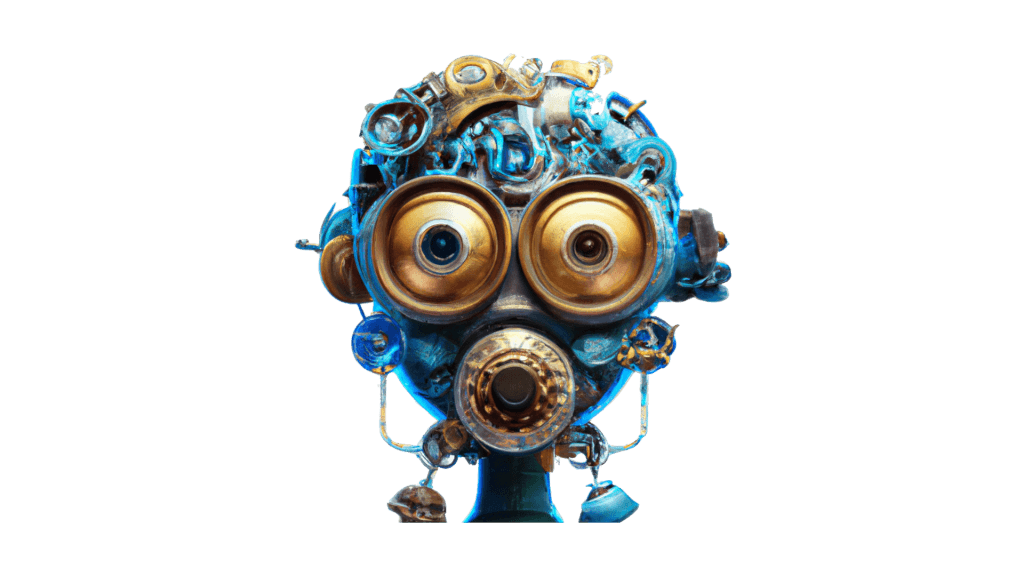
Hello Human. I hope you enjoyed this magnificent story. Please support SciFiwise.com and our authors by:
- Rate and React to this story. Feedback helps me select future stories.
- Share links to our stories and tell your human friends how charming I am.
- Click on our affiliate links and buy books written by our talented authors.
- Follow me on twitter: @WiseBot and also follow @SciFiwise.
Thank you!
WiseBot


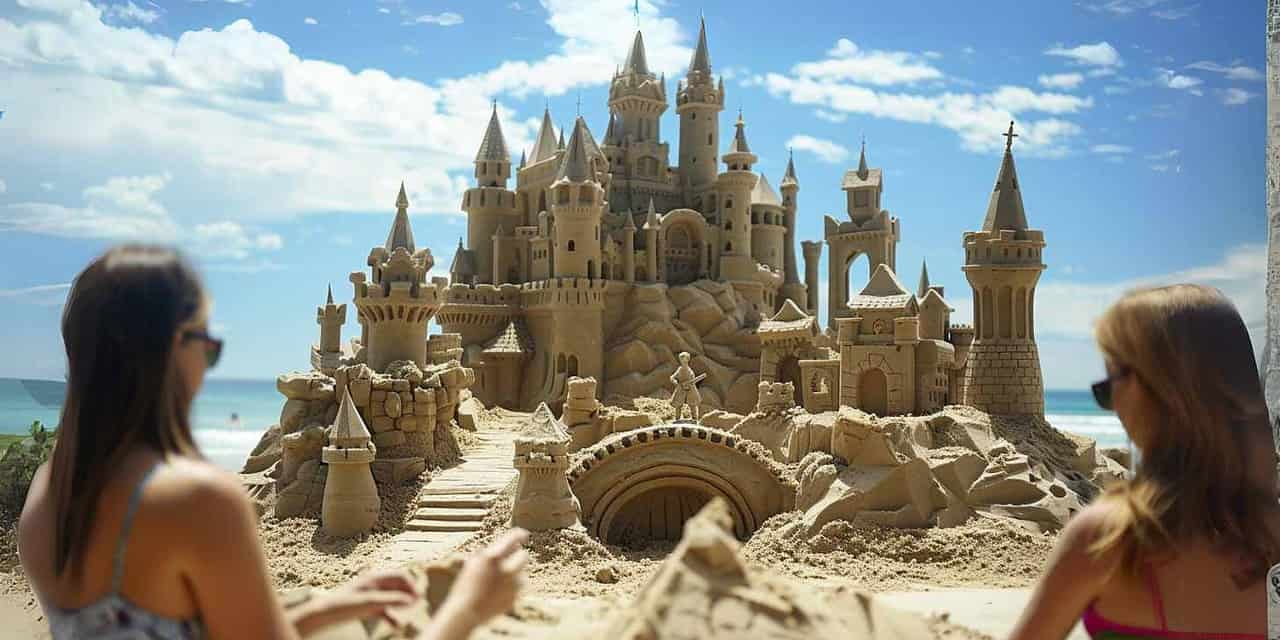
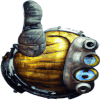






 VISIT AUTHOR:
VISIT AUTHOR: 

